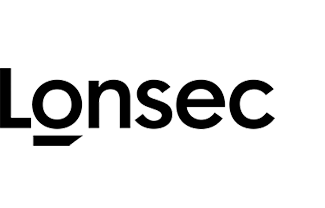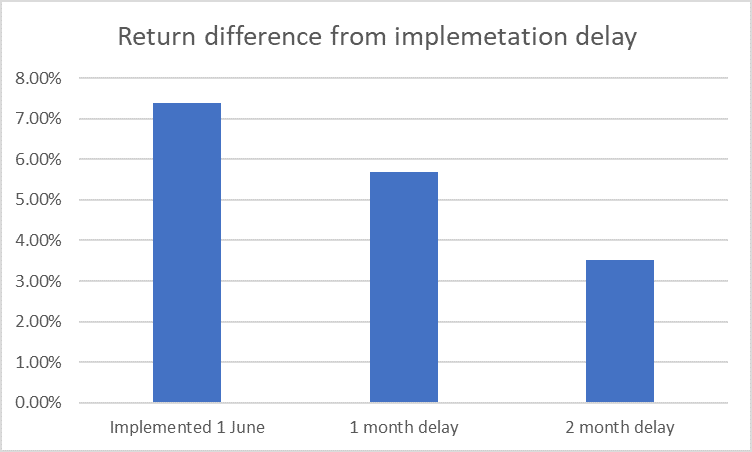The Lonsec Sustainable Managed Portfolios were launched on HUB24 on 8 December 2020 and investor capital was put to work immediately in improving societal and environmental outcomes. The Sustainable portfolios have been well supported to date, with an increasing number of investors looking to invest in not only a way that delivers solid returns, but also aligns to their values.
While we don’t yet have a full month of performance to report on, the portfolios have performed in line with our expectations over the first few weeks, generating positive returns for investors.
And looking forward, there couldn’t be a better time to invest sustainably.
Momentum on climate action is gathering pace as governments, companies and communities seek to move out of this COVID-19 induced haze and look towards a greener and more equitable recovery. Europe and the UK have committed billions towards what some are terming a ‘Green Industrial Revolution’, encouraging innovation and private investment in clean technologies, creating hundreds of thousands of jobs, while at the same time protecting the environment. China too, has backed a ‘green recovery’, setting ambitious targets for reducing carbon emissions, re-forestation and increasing renewable energy sources including wind and solar. With the US re-joining the Paris agreement on 20 January 2021, two thirds of global polluters have now committed to carbon neutrality, or net-zero emissions by 2060 at the latest. These recent developments provide strong regulatory tailwinds for those wanting to invest sustainably.
And while some governments have been dragging their heels on the climate action front (Australia is looking increasingly isolated in its stance), locally companies are forging ahead with their own commitments to reaching net zero. According to Climate Action 100+, 43% of the world’s largest emitters (including Qantas, BHP and Woodside Energy) have now adopted some form of net zero emissions target. While the nature of those targets varies, we view this as an important step and highlights the positive impact capital owners can have through direct shareholder engagement.
Shareholders are voicing their concerns on a range of ESG issues from modern slavery to gender diversity as well as climate related issues. Public awareness of sustainability issues has never been higher. As the Boards of AMP and Rio Tinto are now acutely aware, listening to and responding to broader stakeholder concerns is becoming increasingly important.
But for all this optimism, there is still much work to do, not only on the climate front, but across a range of other Sustainable Development Goals (SDGs) to which these portfolios aim to align themselves. COVID-19 has exacerbated inequality around the world, health outcomes have diverged significantly, and poverty is on the rise particularly in some of the hardest hit developing nations. It is important that as we move into 2021, governments, companies and investment managers alike look to maintain that positive momentum and ensure no-one gets left behind as we build back better.
Now, let’s get to work!
Portfolio update
From a portfolio perspective, one of the ways we work to align the portfolio with SDG 13: Climate Action is through our investment in BNP Paribas Environmental Equity Trust. The strategy is managed by Impax Asset Management, a London based manager who invests globally in companies that are active in the resource efficiency and environmental markets. The top holding in the Trust is Linde Plc, a global leader in industrial gases. In January 2021, Linde announced it would build and operate the world’s largest PEM Electrolyzer for Green Hydrogen. Once built the total green hydrogen being produced will be able to fuel approximately six hundred fuel cell buses, driving 40 million kilometres and saving up to 40,000 tons of carbon dioxide tailpipe emissions per year. This investment also aligns well to SDG 7: Affordable and Clean Energy.
On the fixed income side, the Pendal Sustainable Australian Fixed Interest Fund invested in the Australian dollar KfW Green Bond. KfW is a development bank owned by the German government Projects supported by this bond include the construction of a wind park, solar farm and energy efficient housing in Germany. This bond aligns well to a number of SDGs including SDG 7: Affordable and Clean Energy, SDG 11: Sustainable Cities and Communities and SDG 13: Climate Action.
With initiatives such as the Net Zero Asset Managers initiative, launched in December 2020, global fund managers are also committing to net zero. This initiative aims to secure further backing among asset managers to eliminate greenhouse gas (GHG) emissions from their portfolios. Three managers we are invested with have joined as founding members of this initiative; AXA Investment Management, Wheb and Atlas Infrastructure.
From 1 January 2021, Ausbil announced that it was removing fossil fuel exposure from the investment universe for the Ausbil Active Sustainable Fund. This includes the exploration, mining and/or distribution of fossil fuels, such as oil, gas, oil sands and coal. 70% of the equity managers in the Lonsec Sustainable portfolios now exclude all forms of fossil fuel investments, the remaining 30% exclude at least thermal coal.
| Role | Role | ||
| Australian Equities | Real Assets | ||
| Australian Ethical Australian Shares Fund | ESG / Sustainable / Impact | Resolution Global Property (Hdgd) | ESG |
| Alphinity Sustainable Share Fund | ESG / Sustainable | ATLAS Infrastructure Australian Feeder Fund AUD Heged | ESG |
| Ausbil Active Sustainable Equity | ESG / Sustainable | VanEck Vectors Australian Property ETF | Passive |
| BetaShares Australian Sustainability Leaders ETF | ESG / Sustainable | ||
| Global Equities | Fixed Income | ||
| AXA IM Sustainable Equity Fund | ESG / Sustainable | Pendal Sustainable Australian Fixed Interest Fund | ESG / Sustainable / Impact |
| BNP Paribas Environmental Equity Trust | ESG / Sustainable / Impact | Altius Sustainable Bond Fund | ESG / Sustainable / Impact |
| Pengana WHEB Sustainable Impact Fund | ESG / Sustainable / Impact | PIMCO ESG Global Bond Fund | ESG / Sustainable / Impact |
| BetaShares Global Sustainability Leaders ETF | ESG / Sustainable | Vanguard International Fixed Interest Index ETF Heged | Passive |
Outlook
The last quarter has seen a sharp rotation into some of the more cyclical and value orientated sectors of the market. We expect this rotation to be relatively short lived. Longer term, we see the thematics that have underpinned the strong performance of the ESG/Sustainability sector over the last 18 months to remain intact. Companies that are focused on delivering solutions to the challenges facing society and the environment are particularly well placed in a low-growth world and one boosted by a green recovery. Regulatory tailwinds and green fiscal policy initiatives are now providing good support. Companies that perform well on ESG metrics, that is companies that understand and factor in the risk of climate change, companies that are well-governed and maintain their social license to operate by meeting stakeholder expectations, should also outperform. Opportunities abound as we emerge from COVID-19 pandemic with the chance to ‘rebuild better’.



